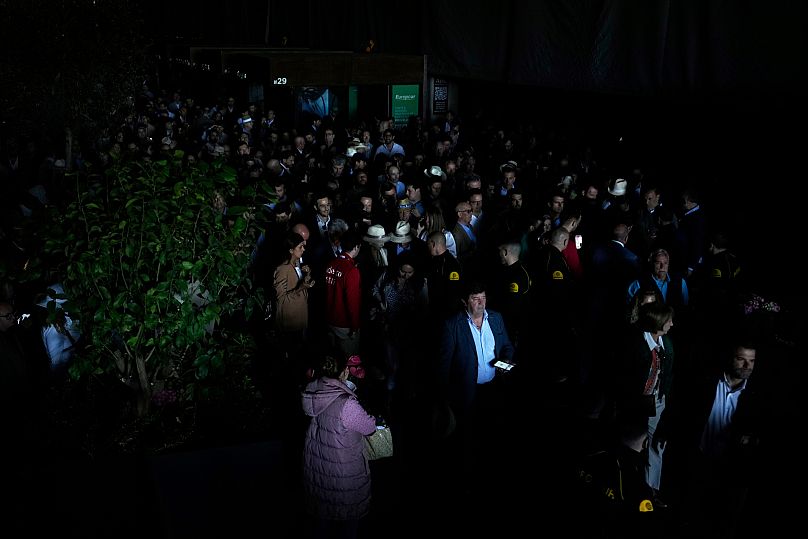The 28 April outage started shortly after 12:30pm in Spain and lasted through nightfall, disrupting businesses, transport systems, mobile networks, Internet connectivity and other critical infrastructure.
Six weeks after Spain and Portugal suffered a massive power outage, authorities in Madrid issued an official report on Tuesday saying April's cascading blackout that left tens of millions disconnected in seconds was caused by technical and planning errors that led to the grid's failure.
Spain's Ecological Transition Minister Sara Aagesen, who manages the nation's energy policy, said in a press conference that small grid failures, concentrated in the south of Spain, led to a chain reaction among larger ones.
The minister said several technical causes that contributed to the event, including "the poor planning" by operators of the grid who didn't find a replacement for one power plant that was supposed to help balance power fluctuations.
Aagesen explicitly ruled out a cyberattack as the cause of the blackout, blaming instead "vulnerabilities, shortcomings or misconfigurations of security measures that could expose the networks to future risks."
The 28 April outage started shortly after 12:30pm in Spain and lasted through nightfall, disrupting businesses, transport systems, mobile networks, Internet connectivity and other critical infrastructure.
In just five seconds, Spain lost 15 gigawatts of electricity, equivalent to 60% of its supply.
Portugal, whose grid is connected to Spain's, also went down. Only the countries' island territories were spared.
Power was fully restored by the early hours of the following day.
The government report included analysts from Spain's national security agencies, which concluded, according to the minister, there were no indications of cyber-sabotage by foreign actors.
The only solid information made public shortly after the system went down came from Spain's grid operator Red Eléctrica, which had narrowed down the source of the outage to two separate incidents in southern Spain where substations had failed.
In the weeks following the blackout, citizens and experts were left wondering what triggered the event in a region not known for power outages and igniting a fierce debate about whether Spain's high levels of renewable power had something to do with the grid failing.
Spain is at the forefront of Europe's transition to renewable energy, having generated nearly 57% of its electricity in 2024 from renewable energy sources like wind, hydropower and solar. The country is also phasing out its nuclear plants.
Spanish Prime Minister Pedro Sánchez pushed back against such speculation and defended renewables.
He asked for patience and said that his government would not "deviate a single millimetre" from its energy transition plans, which include a goal of generating 81% of its electricity from renewable sources by 2030.
















